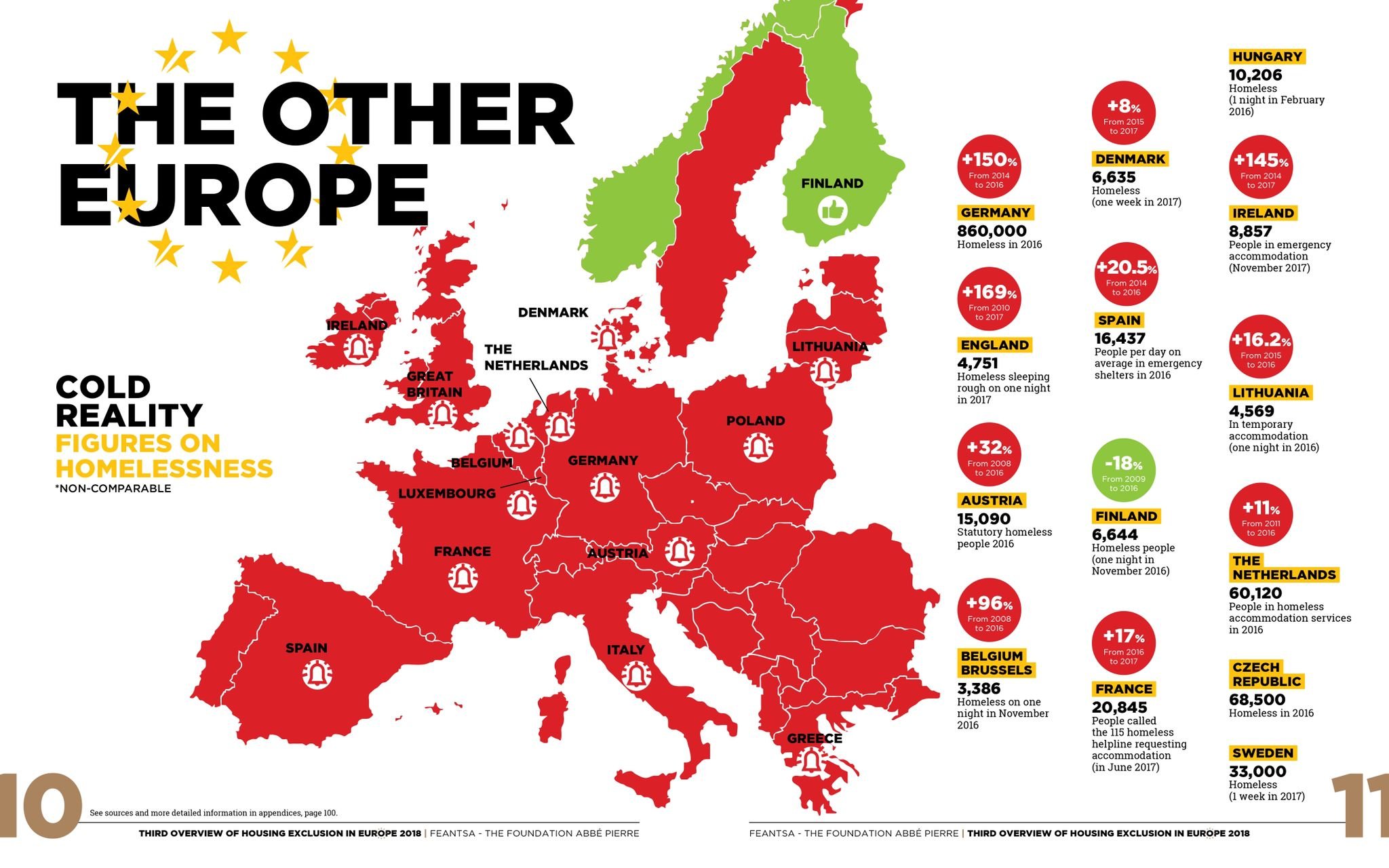Written by Jillian Salaway
Homelessness has been an ongoing problem across the globe for centuries, and despite social welfare initiatives implemented in many areas of the world, homelessness continues to persist. Common rhetoric blames the individual for their inability to obtain stable housing, however it appears that European leaders have begun to acknowledge the larger scope of homelessness and the need for state intervention on a wider and more complete scale.
In June 2021, a conference was held in Lisbon, Portugal to come upon an agreement to create a commission targeted at improving the conditions of individuals suffering from homelessness and the overall issue of housing insecurity. “The high-level conference in Lisbon is co-organised by the Portuguese Presidency of the Council of the EU, the European Commission and the European Federation of National Organisations Working with the Homeless (FEANTSA).”
There were a number of objectives signed in the Declaration by the cooperating European governmental representatives and partners, but it is currently not clear how these objectives will be implemented. In this declaration, these were the objectives comprised of the commission:
no individual sleeps without an emergency housing accommodation (i.e. shelter);
no individual stays in this emergency housing accommodation for longer than is necessary to provide them more stable housing;
no individual is allowed to be removed from the emergency housing accommodation unless they are provided appropriate stable housing in exchange;
eviction of individuals will only be acceptable if they are provided supplemental housing accommodations; discrimination due to housing status is prohibited.
These objectives may seem too ambitious to some, but are completely necessary in order to better address and allieve the current crisis of homelessness. Social welfare programs only go so far and often do not fully address those suffering from housing insecurity. Many in the position of housing instability or street living are only provided reactionary measures by the state, or the resources necessary to keep them afloat after facing the consequence of houselessness. Unfortunately, most nations including the EU lack critical prevention measures that would avert the possibility of slipping into the position of homelessness. The commission that was created would finally implement more than just reactionary measures that only maintains instability among individuals.
Founder of Homeless Entrepreneur Andrew Funk emphasizes the importance of providing opportunities for empowerment and financial stability by highlighting the current issues with policy protections towards the homeless population.
“If they’re not able to have the resources to become active working citizens again, then you’re just consolidating a bigger class that’s living in poverty.”
The creation of this commission will hopefully begin to stray away from the typical tactics of reactionary policy and instead uplift those struggling financially with the opportunity to regain that stability before falling into the cycle of poverty.
Additionally, I spoke to an expert in policy Toni Raja. Raja has a P.h.D in political science and has been a professor at UMass Amherst in the field for over two decades. When I asked him his thoughts on the new European commission, he was more hesitant in its effectiveness to eradicate poverty. Raja states that Western governments and even the United Nations have promised several times to end poverty and have failed to do so. Raja believes that until governments prioritize public interests and the people over private institutions, homelessness and poverty will persist. Raja gives an example of the mayor of Barcelona attempting to reduce evictions in the city:
“The mayor of Barcelona tried to reduce or even stop evictions, and she could not do it because justice prioritizes private property over right to housing. So not only is government initiative important but also the transformation of the legal frame that articulates the public policies.”
In sum, Raja is more confident that poverty will persist until current capitalist systems present in most governments shift to instead protect the rights and interests of the public over any private interests it may hold.
Only time will tell if this new commission targeting poverty and homelessness will effectively be implemented and therefore reduce poverty on a significant scale. It is hopeful that state entities are beginning to initiate preventative-oriented measures to target housing insecurity and poverty, but until governmental institutions prioritize public interests over private incentives, skeptics such as Raja are most likely correct to assume that poverty will continue to cycle. Despite these doubts, this commission represents a new state of progress that will act as a catalyst for progressive policy implementation worldwide.



